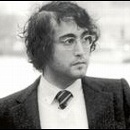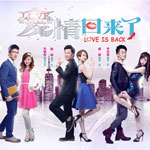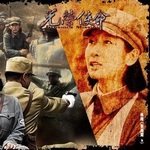by Stephen Thomas Erlewine
As the son of John Lennon, perhaps the most beloved Beatle, and avant-garde musician Yoko Ono, Sean Lennon was a celebrity before he had even begun his recording career. That may be the reason why he didn't choose straight-ahead pop as his musical vocation, like his half-brother Julian did. Instead, he cleverly positioned himself between pop and experimental, taking his cue from such kaleidoscopic '90s multiculturists as the Beastie Boys, Beck, and Cibo Matto. To many ears, his 1998 debut album, Into the Sun, had unexpectedly eclectic roots and a laid-back vibe, earning him positive critical reviews and securing a modest place in the post-alternative hierarchy.
Ten years before Into the Sun, such a transformation seemed unlikely. But toward the end of the '80s, Lennon began to emerge from the seclusion that marked the years following his father's assassination. During his childhood, he was educated in Swiss boarding schools, but occasionally appeared on his mother's albums and sang on the 1984 Ono tribute Every Man Has a Woman. In his early teens, he was occasionally seen decked out in a plastic Thriller jacket and hanging out with Michael Jackson, but his first official step into the spotlight was in the form of filmed interviews for the 1988 documentary John Lennon: Imagine.
Three years later, he organized -- with Ono and Lenny Kravitz -- a star-studded re-recording of his father's "Give Peace a Chance" as a protest to the Gulf War. That year, he also appeared on Kravitz's album Mama Said. Shortly afterward, he retreated from the spotlight again, deciding to attend Columbia University. He spent only a few semesters at college before he dropped out of school to hang out in the New York indie rock scene. He encouraged his mother to begin performing again, supporting her in a noise rock trio named IMA; the trio was featured on Ono's 1995 album Rising and backed her on her subsequent tour. During that time, Lennon met Cibo Matto, who were hired to remix a song on Ono and IMA's EP, and he became Cibo Matto's touring bassist as well as the boyfriend of their keyboardist, Yuka Honda. For a short while in the mid-'90s, he was touring with both IMA and Cibo Matto; it was the first time he was on the road playing music for an extended period of time.
Once the touring was completed, Lennon played some of his songs to Beastie Boy Adam Yauch. Impressed with the demos, Yauch asked Lennon if he wanted to record a solo album for the Beasties' label, Grand Royal. He accepted the offer and had Honda produce the resulting album, Into the Sun. A mellow, eclectic album that bounces between bossa nova and alternative rock, Into the Sun was released in the spring of 1998. Journalists and observers were ready to spot musical similarities between Sean and his father, but perhaps the clearest shared trait was an ability to unwittingly stick his foot in his mouth just like his dad. Shortly before Into the Sun, he gave an interview with The New Yorker claiming his father was assassinated by the American government. It helped stir up interest for his debut album, but he didn't need it, since the rock press was already eager to run stories about him -- not only was he the heir to rock royalty, he had the Grand Royal stamp of approval. Consequently, Into the Sun received strong reviews and, on the basis of those reviews, earned a small following, debuting at number 153 on the charts.
When Grand Royal folded in 2001, Lennon found himself without a label, but Capitol soon signed him. However, it wasn't until 2006 that he released new material; his second album, the mostly piano-driven Friendly Fire, appeared that fall and featured contributions from Honda, Ono, Money Mark, and Vincent Gallo.













